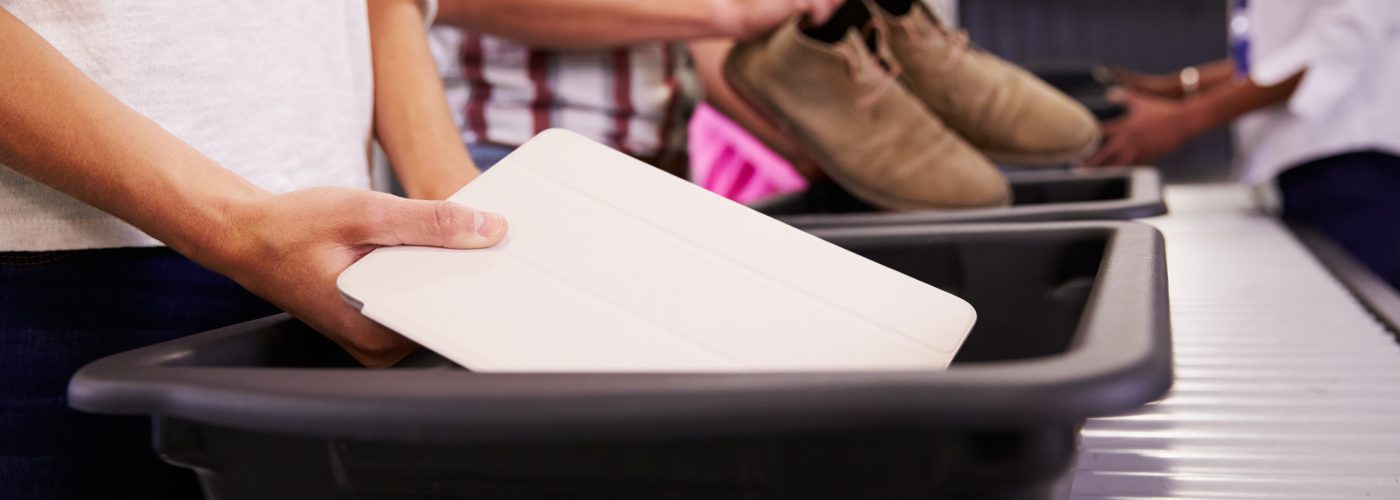The Department of Homeland (DHS) plans to continue its confusing and controversial policy on searching some electronic devices at U.S. airports. In remarks to the Senate Homeland Security Committee, DHS Secretary John Kelly claimed the searches are valuable in the fight against terrorism.
However, most travelers may not even aware that the policy exists. Searches of travelers’ mobile phones, laptops, and other devices are exceedingly rare, though they are happening more frequently. In 2016, U.S. Customs and Border Protection reported 23,877 electronic media searches out of more than 390 million arrivals. That’s a tiny number, but still amounts to a 500 percent increase over the 4,764 searches reported in 2015.
Why should travelers care about what seems like a minor issue? Simple: legality, and your rights.
Critics argue that the practice represents unlawful search and seizure. Bloomberg reports that security officials can search the electronic devices of “anyone whose statements appear to betray inconsistencies.” Which means … what, exactly? Can a nervous traveler unwittingly set in motion an invasive search of his or her personal electronic devices? Shouldn’t officials have to get a warrant to search someone’s personal electronic media?
And what happens if a traveler refuses to hand over their phone? According to Bloomberg, “Failure to comply could result in devices being seized by federal authorities and the person not being admitted to the U.S.”
Theoretically, citizens should have the right to refuse this sort of unwarranted search and seizure. Literally seizing a person’s phone based on what amounts to a hunch violates the spirit of the constitution, at a minimum. The DHS program creates uncertainty around what might trigger a search and what rights you have when a search is requested. So far, the apparent severity of the consequences for refusing one makes it hard for anyone to refuse.
DHS’ defense of the program seems to rest largely on its minuscule usage. Kelly described the searches as “not routine,” and said they are done in “a very small number of cases.”
“If there’s reason to do it, we will do it,” he said, “Whether it’s France, Britain, Egypt, Saudi Arabia, or Somalia, it won’t be routinely done at a port of entry.”
Fair enough, but then why do it at all? And why not provide travelers with clearer rules and an explanation of their rights? For years, the government has struggled to find a balance between protecting passengers and protecting their rights. This appears to be another case of a policy not quite finding that elusive middle ground. And once again, it leaves travelers stuck wondering what to do.
Readers, have you encountered this sort of search? Do you think they should continue?
More from SmarterTravel:
We hand-pick everything we recommend and select items through testing and reviews. Some products are sent to us free of charge with no incentive to offer a favorable review. We offer our unbiased opinions and do not accept compensation to review products. All items are in stock and prices are accurate at the time of publication. If you buy something through our links, we may earn a commission.
Related
Top Fares From
Today's Top Travel Deals
Brought to you by ShermansTravel
France: 8-Night Paris, Avignon & Nice...
Infinity Worldwide Vacations
 vacation
$2880+
vacation
$2880+
Poconos: 3 Nts in Garden of...
ResortsAndLodges.com
 hotel
$305+
hotel
$305+
7-Nt Canada & New England Cruise,...
Princess Cruises
 cruise
$839+
cruise
$839+




